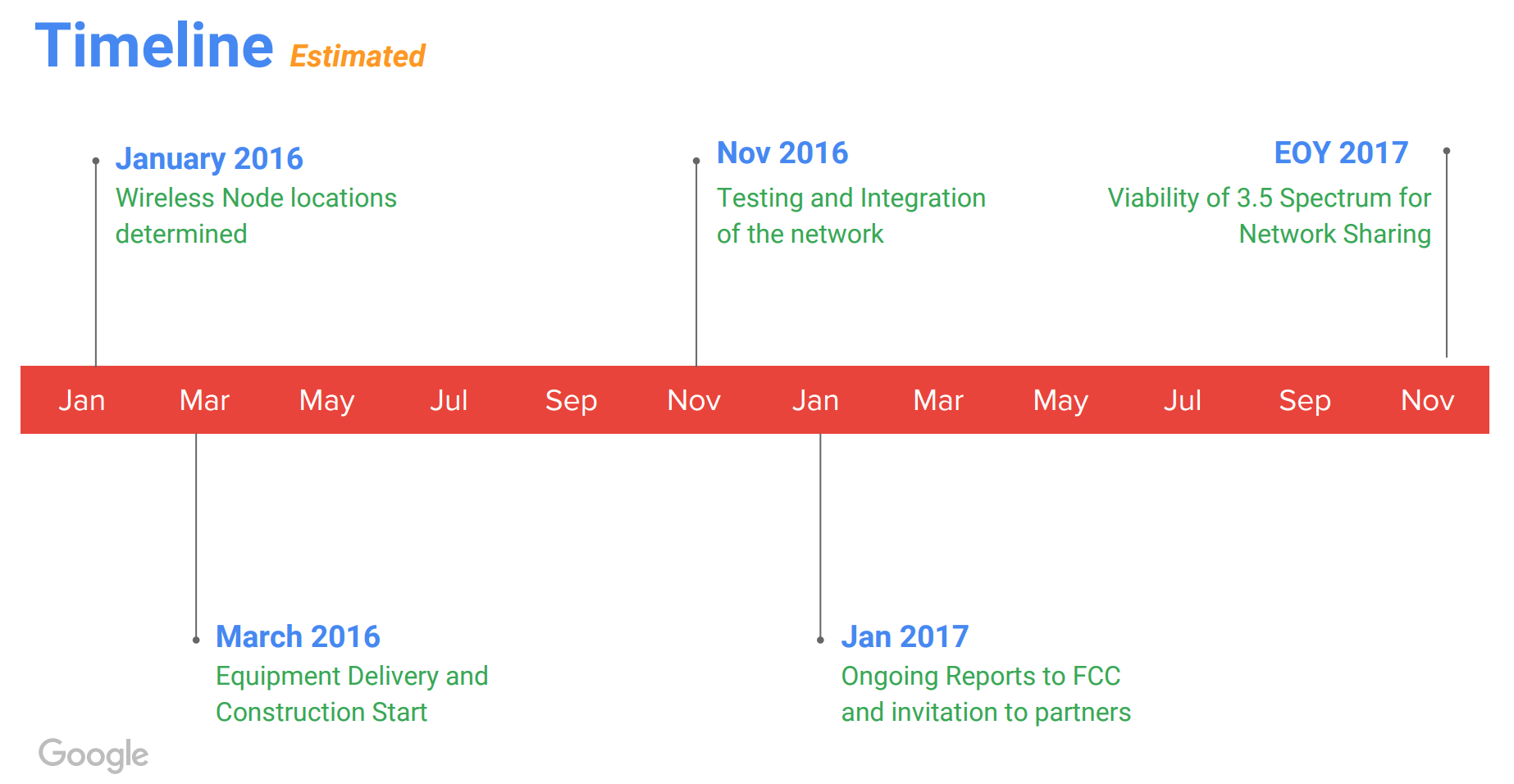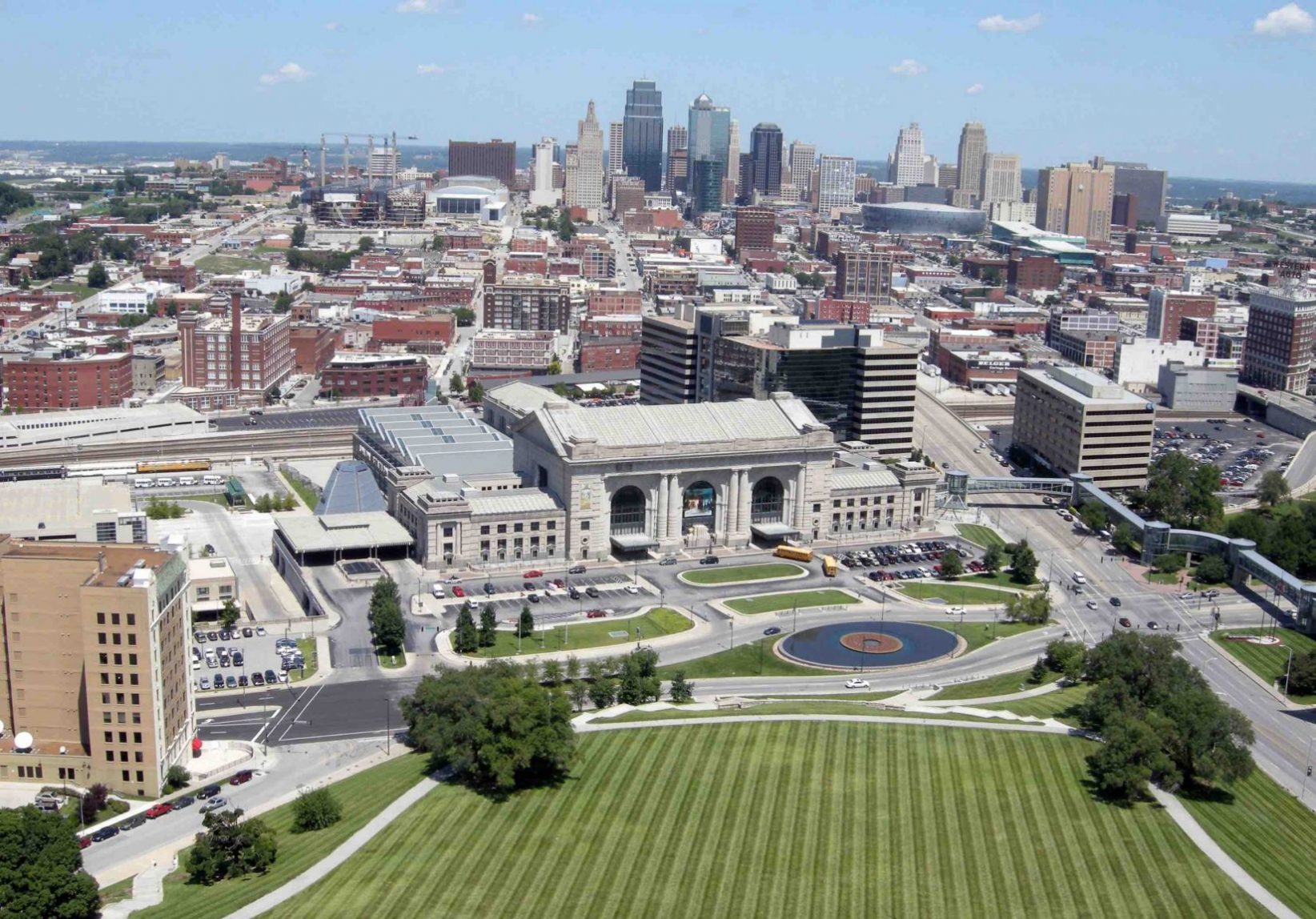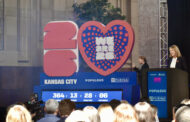Google apparently likes Kansas City a lot — a whole lot.
Now four years after it launched its gigabit Internet service in the area, Google is planning to build a massive wireless broadband network in Kansas City that could make it one of the most connected cities on earth. New FCC rules allocate a massive new portion of wireless spectrum that will increase the speed, capacity and adaptability of wireless networks, leading to better mobile Internet performance.
The plans were announced during a Kansas City Transportation and Infrastructure committee meeting on April 7.
Here’s more on the company’s prospective timeline.

Image by Google
“This further cements Kansas City as a place for cutting edge research and investment at the intersection of technology and social impact,” said Aaron Deacon, director of KC Digital Drive. “All the talk the last few years about wired connections, there’s an analogous conversation around wireless. And the fact is, they really are one conversation about networks. Wired begets wireless; wireless capacity is in some sense one of the “killer apps” that gigabits fiber enables. I expect this to encourage and accelerate the investment and activity we’ve seen growing over the past five years.”
Enabling the network’s testing is a relatively recent change with the Federal Communications Commission that established new rules for the Citizens Broadband Radio Service.
The new rules aim to address massive growth of data-intensive services — such as video streaming, gaming, video conferencing and more — via a plethora of internet-enabled devices.
The new FCC rules allow for shared spectrum — similar to Wi-Fi where anyone can operate a radio — and a spectrum management system that will coordinate between users. That management system is similar to how today’s cellular LTE networks operate, Google said during its meeting with the city.
But perhaps most importantly, the rules allocate a massive new portion of wireless spectrum — 150 MHz in the 3.5 GHz band. The FCC says that the spectrum will increase the speed, capacity and adaptability of wireless networks, leading to better mobile Internet performance.
Kansas City officials and Google have yet to release many details on the prospective speeds that the network will deliver. In its presentation to the city, however, Google indicates that the wireless nodes will be placed “using equipment attached to (light) poles in the public right of way.” The term of the agreement is two years, with possible additional terms of two, four-year renewals.
The agreement is noncommercial in nature, meaning that Kansas City is not charging Google rental fees to use space on its public rights of way. Google also is not to charging the city or Internet surfers for use of the network.
While the prospective initiative is on a much broader scale, Google already has public, wireless internet offerings in Kansas City. In 2014, Google launched a free Wi-Fi network in Kansas City Crown Center.
Why, after already “hooking up” Kansas City with its Google Fiber service, is Google testing this wireless network in Kansas City? Google officials say that Kansas City has an array of advantages, including its current connectivity to Google Fiber and its understanding of tech and innovation. In addition, Google said that the Kansas City metro area has served as an “excellent partner” over the years.
If pilot testing of the wireless network is successful, the Kansas City metro area will be the first Gigabit region to benefit from advanced wireless services, Google said.




































